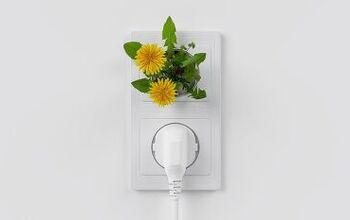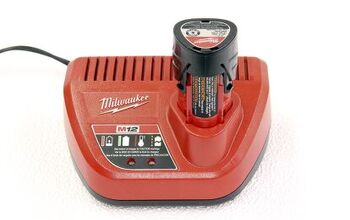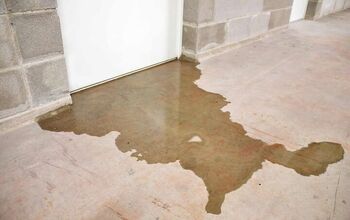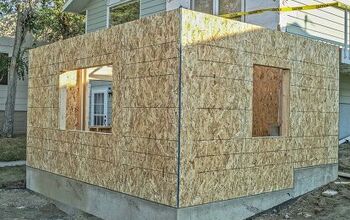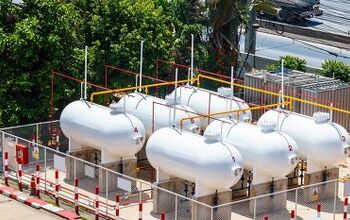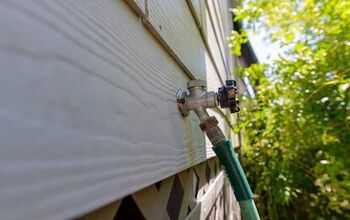14 Ways To Prepare Your Home When Wildfires Are Close

Preparing your home for an approaching wildfire is a scary thought, but it’s increasingly becoming a reality in much of North America. With wildfires on the rise throughout the US and Canada, it’s important you and your family know how to give your home a fighting chance when a wildfire is getting dangerously close to your property.
If there is a wildfire near your home, you must pack a bag with essentials. Make sure all valuables are brought to a location far from the fires, and turn off your gas and pilot lights. Ensure anything combustible is relocated far from your home, and shut all doors, windows, and vents before leaving. Leave hoses and a ladder for firefighters, and keep your gate unlocked when you leave.
Wildfires are an unimaginable danger, but you need to be prepared for the worst. If you live somewhere where wildfires are a threat, you must know the best ways to keep your home and loved ones as safe as possible in case a fire is close by. Below is a list of many great ways you can protect your property when a wildfire is inching closer to your property.
14 Ways To Prepare When A Wildfire Is Close To Your Home
1. Close Doors, Windows And Vents
If a wildfire is getting close to your home, one of the most important first steps to take is to close your doors, windows, and vents. When a fire gets near, so does smoke. You want to do all you can to keep toxic smoke out of your home for as long as you can.
Furthermore, burning embers float a long way, especially when there’s wind. Keeping your home sealed tight helps create a barrier that will block anything that's burning from entering.
Closing your vents in addition to your doors and windows helps limit the oxygen in your home when you evacuate. Fire needs oxygen to survive, so this can help keep a fire from engulfing your home.
2. Move Anything Combustible Away From The Home
As a wildfire starts moving closer to your home, you must take inventory of anything inside or outside your home that’s combustible. The first items you should think of are propane tanks, gas tanks, and any other fuel canisters you have in your garage or patio area.
Make sure you relocate all these combustible items a safe distance away from the home or remove them from your property altogether. High temperatures and flames can cause these containers to explode, which can cause catastrophic damage to your home.
3. Turn Off The Gas
If you have a home that uses natural gas, then you must turn gas lines off when a wildfire gets close to your home. Remember, you don’t just want to cut off gas valves, but instead cut the gas off at the meter.
Turn all your pilot lights off as well. This will ensure that if a fire does get next to your home, it won’t have the gas in your lines as added fuel.
4. Keep The Lights On
If you decide to evacuate your home because a fire is dangerously close to your home, you may think all electricity should be turned off. While you should certainly cut off the gas and turn appliances off, it’s important you keep the lights on.
Keeping the lights turned on will make it much easier for firefighters to navigate your home if they need to enter. This makes their job safer and easier, and in turn, it can give your house a better chance of survival.
5. Pack A Go-Bag With Documents And Essentials
If there is a wildfire in your area, make sure you have a go-bag. This is a suitcase or large bag that has all the essentials you may need in case you need to make a rapid exit.
Your go-bag should have your wallet, and any important documents normally kept in your home (like your home’s deed, social security card, and anything else not in your fireproof safe). Sometimes wildfires shift and move quickly, leaving you with only seconds to evacuate. Having a go-bag by your door can make it much easier to escape when time is limited.
6. Ensure All Valuables Are Relocated
As soon as you learn there is a wildfire in your area, it’s a smart idea to relocate all your valuables and precious mementos to another location. If you have a friend or loved one who lives somewhere further from the fires, see if you can bring important items there.
You may not have much time to evacuate if a wildfire is getting close, so having all your valuables somewhere safe will make your swift exit much easier.
7. Discuss An Evacuation Plan
When there’s a wildfire within striking distance, then everyone in your household must be on the same page. You should have fire drills, discuss emergency evacuation plans, and go over shared responsibilities.
Communicating emergency plans in advance helps in several ways. It eliminates confusion of where to meet and where to go, and it also can help keep everyone calm in the event of a hasty emergency evacuation.
8. Clear Shrubs And Debris Around Your Home
If you live in a home with lots of property around it, then you must tidy up. You need to remove any dead branches, shrubs, and dry flammable materials located around your home. If your lawn has nothing that can catch on fire, there's a better chance the fire will not reach your doorstep.
9. Prepare Your Windows
In addition to closing all your windows, there are further steps you can take to ensure a fire won’t come into your home through your window panes. If you have shutters, you should close them to give an extra layer of protection.
Inside your home, and ensure any flammable curtains and drapes are removed before you evacuate the home.
10. Leave A Ladder For Firefighters
If you own a ladder, don’t keep it in the shed or your garage. Leave any ladder in plain view outside your home before you evacuate.
Ladders are useful tools for firefighters. If they have an extra one, they may be able to use it to access the roof or second floor of your home to help save it.
11. Keep Hoses Connected
Another useful tool for firefighters is a garden hose. Firefighters have much stronger hoses, but those hoses may not reach your home, or they may run out of water. Having an extra water supply to fight fire can be helpful in the event of an emergency.
12. Stock Up On Emergency Supplies
Remember that even if a fire doesn’t reach your property, it may surround you. Sometimes, fires destroy roads and make them impassable for days. Therefore, you must have emergency supplies stocked in your kitchen pantry.
Have ample food, first aid, and other survival essentials to last you a minimum of one week, ideally longer.
13. Communicate With Your Neighbors
Natural disasters have a way of bringing communities together. Regardless if you and your neighbors talk frequently, you must communicate with them when a wildfire is close.
You should help each other however you can, and ensure everyone who shares a property line with you is on the same page. After all, your home is more likely to survive if your neighbors are also doing all they can to keep danger away from their doorsteps.
14. Keep Your Gate Unlocked If You Evacuate
Lastly, as you exit your well-protected home and head to safety, ensure you make it as easy as possible for firefighters to enter. Leave your gate unlocked, and make sure it is as easy as possible to get into your home and navigate it once inside.
Final Notes On Preparing Your Home When A Wildfire Is Close
You may never want to imagine the thought of a wildfire heading for your home, but it’s crucial you prepare for the moment when it happens. If a wildfire is close to your home, ensure all your doors, windows, shutters, and vents are closed.
Ensure anything combustible is far from the home. Turn off your gas at the meter, pack a go-bag with essentials, and make it easier for firefighters by leaving hoses connected, ladders in sight, and your gate unlocked.
Related Guides:
- Pantry Items Everyone Needs In Anticipation Of Hurricane
- 15 Alternatives to Sandbags (for Temporary Flood Protection)

Tom Gaffey is an expert writer who currently resides in Washington D.C. Tom has a passion for real estate and home improvement writing, as well as travel and lifestyle writing. He lived the last twelve years in Hawaii where he worked closely with luxury resorts and event planners, mastering his knowledge of aesthetics and luxury products. This is where he found his passion for home improvement and a keen interest in DIY projects. Currently, Tom resides in Washington D.C, and also working on his debut fiction novel.
More by Tom Gaffey











![The 5 Best Angle Grinders – [2022 Reviews & Buyer's Guide]](https://cdn-fastly.upgradedhome.com/media/2023/07/31/9071326/the-5-best-angle-grinders-2022-reviews-buyer-s-guide.jpg?size=350x220)

